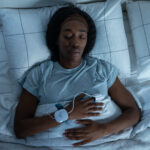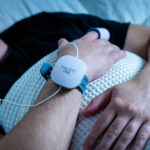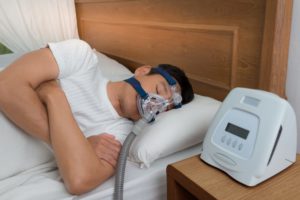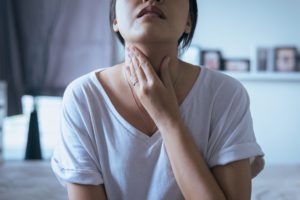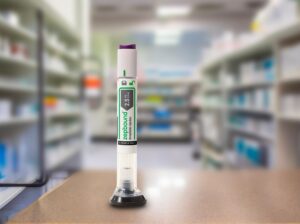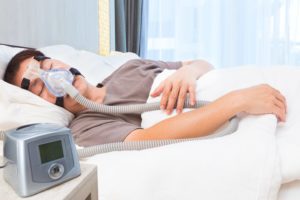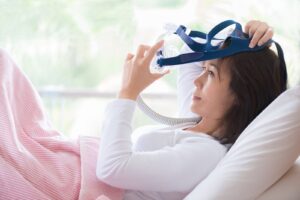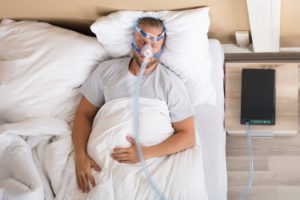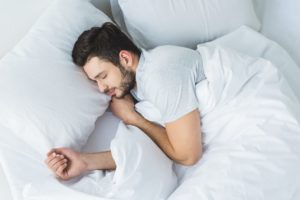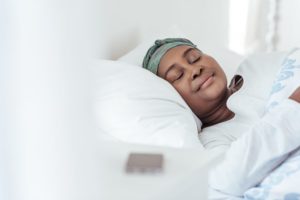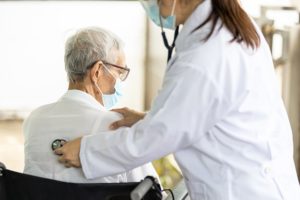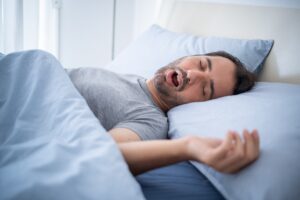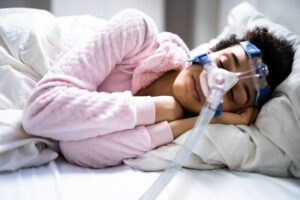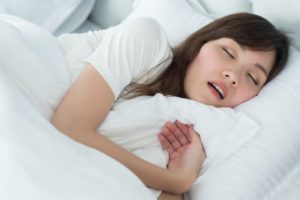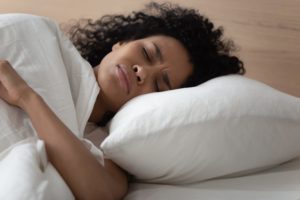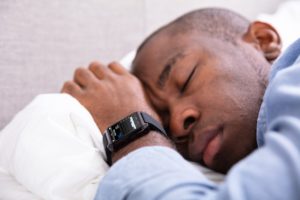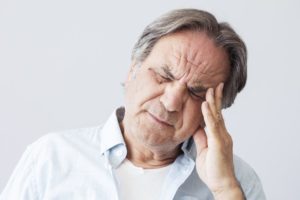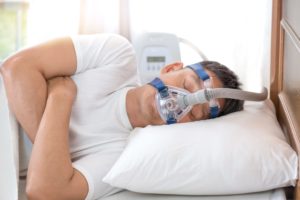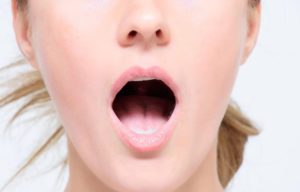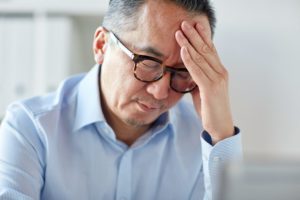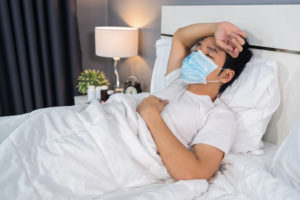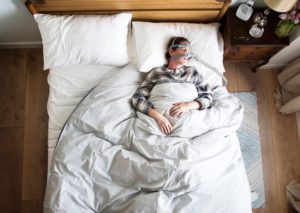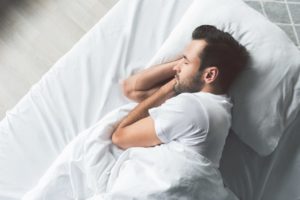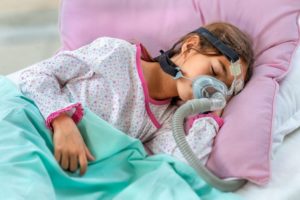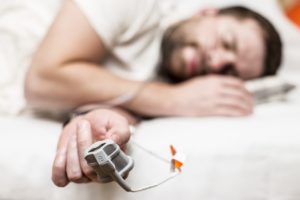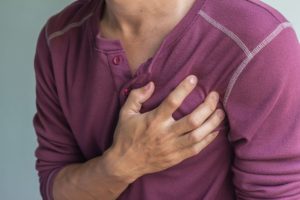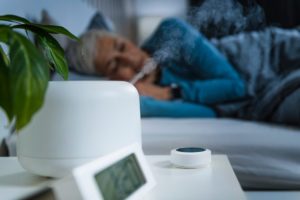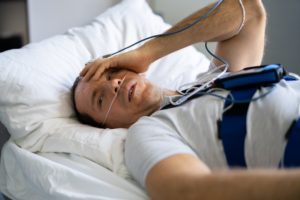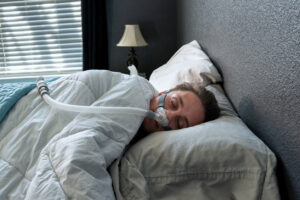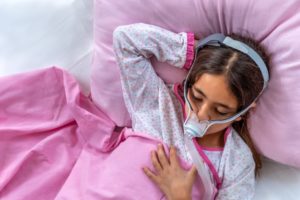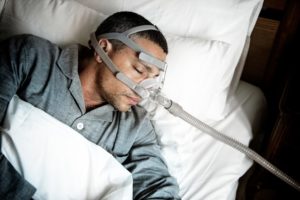When you buy through our links, we may earn a commission. Products or services may be offered by an affiliated entity. Learn more.
The Connection Between Sleep Apnea and PTSD
- PTSD and sleep apnea often coexist and can exacerbate symptoms of one another.
- Sleep apnea can worsen sleep quality, causing daytime impairments and making PTSD recovery more difficult.
- Treating one condition can positively impact the other due to their bidirectional relationship.
- CPAP therapy is a proven effective treatment for sleep apnea and the management of symptoms.
Post-traumatic stress disorder (PTSD) is a mental health condition that can develop after experiencing a traumatic event, like war, criminal assault, abuse, terrorism, natural disaster, or a car or plane crash. The National Center for PTSD estimates 7 to 8 percent of people experience PTSD at some point in their lives. People with PTSD experience a variety of symptoms including flashbacks, memory problems, and the tendency to feel on edge or become easily startled.
Sleep problems are another common symptom of PTSD. The sleep disorders most associated with PTSD are insomnia and nightmares. However, emerging research indicates a strong association between PTSD and another sleep disorder: sleep apnea.
Individuals with obstructive sleep apnea (OSA) experience temporary lapses in breathing during the night, often accompanied by loud snoring, choking, or gasping sounds. When these symptoms occur, the brain has to kick-start breathing again, disrupting sleep. As a result, individuals with OSA wake up feeling unrefreshed and suffer from excessive sleepiness throughout the day — even when they’ve slept through the night.
Think You May Have Sleep Apnea? Get Help Today
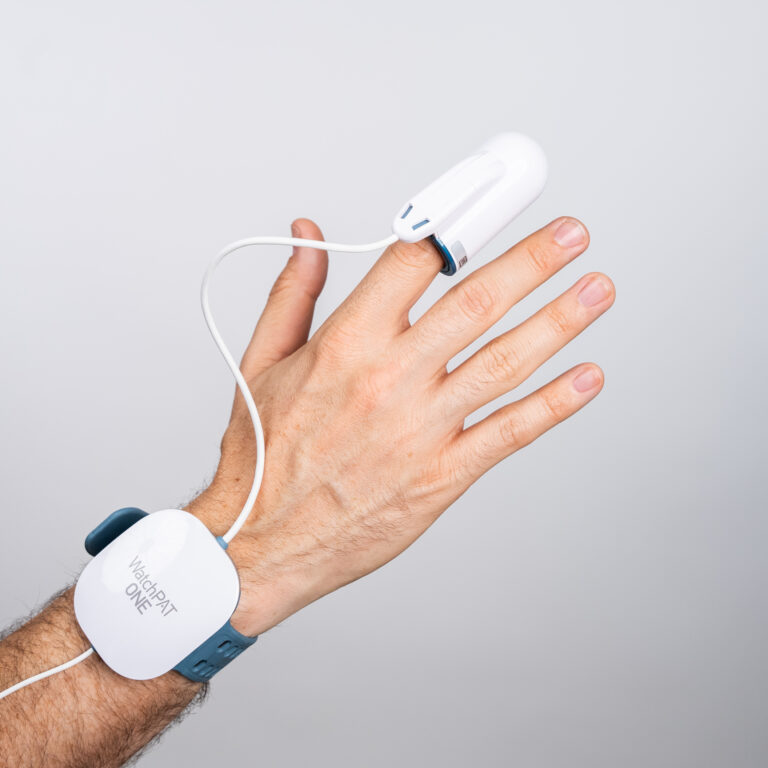
our partner at sleepdoctor.com
10% off Home Sleep Tests
Buy Now“Truly grateful for this home sleep test. Fair pricing and improved my sleep!”
Dawn G. – Verified Tester
The Link Between PTSD and Sleep Apnea
How common is it to have both OSA and PTSD? OSA affects between 17 to 22% of the general population. Among individuals with PTSD, that number ranges from 12 to 90%. People who have both OSA and PTSD are more likely to have more severe PTSD symptoms.
Sleep-disordered breathing can be a sign of untreated OSA, which is associated with worse symptoms of PTSD, as well as an increased risk of heart failure, dementia, and certain cancers. Sleep-disordered breathing is present in 95% of individuals who evacuated a fire, and 91% of victims who experienced consecutive crimes.
Veterans are up to three times more likely to have PTSD. Men, who represent a larger percentage of the veteran population, are also more likely to have sleep apnea. According to one study, 69% of Vietnam veterans with PTSD also had sleep-disordered breathing.
Among the general population, the risk for sleep apnea increases with age. However, young veterans with PTSD may have an outsized risk for their age group. One study found that 69% of young Iraq and Afghanistan war veterans screened positive for OSA.
Individuals with PTSD who also experience sleep problems such as OSA are likely to experience more severe depression, a higher suicide risk, increased substance abuse, and a poorer quality of life. Individuals who develop OSA before age 70 also have an increased risk of early death.
Does PTSD Cause Sleep Apnea?
Does PTSD cause sleep apnea, or is it the other way around? It’s hard to say. Individuals with more severe OSA (measured by the number of times a person experiences an apnea, or stops breathing for 10 seconds or more, each hour) are more likely to have more severe PTSD. At the same time, the more severe their PTSD, the more severe their OSA. Specifically, for each clinically significant increase in PTSD symptom severity, a veteran’s risk of OSA increased by 40 percent.
The disturbed sleep caused by sleep apnea can contribute to sleep deprivation that worsens PTSD symptoms, making recovery more difficult. Even if a sleeper doesn’t wake up while experiencing OSA symptoms, sleep apneas arouse the sympathetic nervous system, decreasing overall sleep quality. The resulting sleep deprivation can impair mood and decision-making — reducing a person’s likelihood of using CPAP therapy, the common treatment for sleep apnea.
Fear Extinction and REM Sleep
Good sleep benefits individuals with PTSD and plays an extremely important role in reducing the fear associated with traumatic memories. Studies show that sleep, especially REM sleep, helps facilitate fear extinction — a process where your brain forgets the association of a neutral trigger with a fear response. Just as your brain learns to consolidate and remember events during REM sleep, it also works to reduce the fear associated with certain memories.
Both fear extinction and nightmares occur during REM sleep. When a person with PTSD wakes up from a nightmare, it disturbs their REM sleep and interrupts this important fear extinction process. If the individual also has sleep apnea, their tendency to experience disturbed sleep is even more likely. In fact, for some individuals with OSA, the majority of their apneas occur during REM.
Some researchers believe the connection between PTSD and sleep apnea stems from the brain. Individuals with PTSD have lower growth hormone (GH) levels than those without PTSD, and reduced GH secretion is associated with more awakenings during the night. Chronic stress, like that experienced by those with PTSD, can also lead to frequent awakenings.
Treating Sleep Apnea and PTSD
Because difficulty sleeping is a common arousal symptom of PTSD, better sleep hygiene is often part of the PTSD treatment plan, along with talk therapy and medication. Doctors may recommend following a strict sleep schedule, adopting a calming bedtime routine to relieve stress, and reducing caffeine and alcohol intake.
Sleep apnea is most commonly treated with a weight loss program or weight loss surgery for those who are overweight, and continuous positive airway pressure (CPAP) therapy. In CPAP therapy, Individuals sleep with a mask that connects via a hose to a CPAP machine on their bedside table. CPAP therapy enables the person’s airways to stay open during sleep, reducing apnea episodes during the night.
Fortunately, the evidence suggests that for individuals with sleep apnea and PTSD, consistent CPAP therapy can not only relieve symptoms of sleep apnea, but also those of PTSD, including anxiety, depression, nightmares, and quality of life. Unfortunately, the reverse is also true: untreated OSA is associated with poorer outcomes for PTSD.
Adherence to CPAP Therapy
Adherence to CPAP therapy is less common than doctors would like, simply because sleeping with the mask on can feel uncomfortable. Individuals with PTSD are significantly less likely to use CPAP therapy consistently, often due to masking discomfort, nightmares, and claustrophobia. Nightmares in particular are associated with higher resistance to CPAP therapy. Individuals with PTSD use CPAP therapy for a shorter amount of time — only 3.5 hours on average — and on fewer nights overall.
A study of veterans found that among those without PTSD, 70% adhered to CPAP therapy. Among veterans with PTSD, that adherence rate dropped to less than 50 percent.
Non-adherence to CPAP therapy has serious consequences. One study of individuals with PTSD and OSA found that those who followed their CPAP therapy experienced a 75% improvement in PTSD symptoms. For those who didn’t, their symptoms got 43 percent worse.
Studies show the more frequently a person uses their CPAP therapy, the more their PTSD symptoms improve. CPAP therapy has an even stronger positive effect among those with severe PTSD, as opposed to mild to moderate symptoms.
Specifically, CPAP therapy can significantly reduce the frequency of nightmares — by as much as 50 percent — and the distress they cause for individuals with PTSD. CPAP therapy also relieves the daytime sleepiness symptoms of PTSD, improving quality of life.
When It’s Time To See Your Doctor About Sleep Apnea
If you suffer from PTSD and are concerned you may also have sleep apnea, consider seeing a doctor if:
- Your sleep partner complains of loud snoring or mentions that your breathing pauses during your sleep.
- You wake up gasping or choking during the night.
- You still feel tired after a full night’s sleep.
- You have trouble staying awake at school or work, or when you’re driving.
If you notice any of these signs, talk to your doctor about your sleep. With consistent treatment, including CPAP and talk therapy, the symptoms of PTSD and OSA can be significantly reduced.

Still have questions? Ask our community!
Join our Sleep Care Community — a trusted hub of sleep health professionals, product specialists, and people just like you. Whether you need expert sleep advice for your insomnia or you’re searching for the perfect mattress, we’ve got you covered. Get personalized guidance from the experts who know sleep best.
References
15 Sources
-
National Institute of Mental Health. (2019, May). Post-Traumatic Stress Disorder. National Institute of Mental Health., Retrieved on January 25, 2021, from
https://www.nimh.nih.gov/health/topics/post-traumatic-stress-disorder-ptsd/index.shtml -
National Center for PTSD. (2019, October 17). How Common is PTSD in Adults? U.S. Department of Veterans Affairs., Retrieved on January 25, 2021, from
https://www.ptsd.va.gov/understand/common/common_adults.asp -
van Liempt S. (2012). Sleep disturbances and PTSD: A perpetual circle? European Journal of Psychotraumatology, 3, 10.3402/ejpt.v3i0.19142.
https://pubmed.ncbi.nlm.nih.gov/23050070/ -
Collen, J. F., Lettieri, C. J., & Hoffman, M. (2012). The impact of posttraumatic stress disorder on CPAP adherence in patients with obstructive sleep apnea. Journal of Clinical Sleep Medicine, 8(6), 667–672.
https://pubmed.ncbi.nlm.nih.gov/23243400/ -
National Heart, Lung, and Blood Institute. Sleep apnea – what is sleep apnea? www.nhlbi.nih.gov. Published March 24, 2022., Retrieved on January 25, 2021, from
https://www.nhlbi.nih.gov/health-topics/sleep-apnea -
Franklin, K. A., & Lindberg, E. (2015). Obstructive sleep apnea is a common disorder in the population-a review on the epidemiology of sleep apnea. Journal of thoracic disease, 7(8), 1311–1322.
https://pubmed.ncbi.nlm.nih.gov/26380759/ -
Jaoude, P., Vermont, L. N., Porhomayon, J., & El-Solh, A. A. (2015). Sleep-disordered breathing in patients with post-traumatic stress disorder. Annals of the American Thoracic Society, 12(2), 259–268.
https://pubmed.ncbi.nlm.nih.gov/25535907/ -
National Center for PTSD. (2018, September 24). How common is PTSD in veterans? U.S. Department of Veterans Affairs., Retrieved on January 25, 2021, from
https://www.ptsd.va.gov/understand/common/common_veterans.asp -
Yesavage, J. A., Kinoshita, L. M., Kimball, T., Zeitzer, J., Friedman, L., Noda, A., David, R., Hernandez, B., Lee, T., Cheng, J., & OʼHara, R. (2012). Sleep-disordered breathing in Vietnam veterans with posttraumatic stress disorder. The American Journal of Geriatric Psychiatry, 20(3), 199–204.
https://pubmed.ncbi.nlm.nih.gov/20808112/ -
Colvonen, P. J., Masino, T., Drummond, S. P., Myers, U. S., Angkaw, A. C., & Norman, S. B. (2015). Obstructive Sleep Apnea and Posttraumatic Stress Disorder among OEF/OIF/OND Veterans. Journal of clinical sleep medicine, 11(5), 513–518.
https://pubmed.ncbi.nlm.nih.gov/25665698/ -
Alzoubaidi, M., & Mokhlesi, B. (2016). Obstructive sleep apnea during rapid eye movement sleep: Clinical relevance and therapeutic implications. Current Opinion in Pulmonary Medicine, 22(6), 545–554.
https://pubmed.ncbi.nlm.nih.gov/27583667/ -
Lettieri, C. J., & Williams, S. G. (2017). The PTSD-OSA paradox: They are commonly associated and they worsen outcomes, but treatment nonadherence is common and the therapeutic effect limited. What are clinicians to do?. Journal of Clinical Sleep Medicine, 13(1), 5–6.
https://pubmed.ncbi.nlm.nih.gov/27998382/ -
El-Solh, A. A., Ayyar, L., Akinnusi, M., Relia, S., & Akinnusi, O. (2010). Positive airway pressure adherence in veterans with posttraumatic stress disorder. Sleep, 33(11), 1495–1500.
https://pubmed.ncbi.nlm.nih.gov/21102991/ -
El-Solh, A. A., Vermont, L., Homish, G. G., & Kufel, T. (2017). The effect of continuous positive airway pressure on post-traumatic stress disorder symptoms in veterans with post-traumatic stress disorder and obstructive sleep apnea: A prospective study. Sleep Medicine, 33, 145–150.
https://pubmed.ncbi.nlm.nih.gov/28449895/ -
Tamanna, S., Parker, J. D., Lyons, J., & Ullah, M. I. (2014). The effect of continuous positive air pressure (CPAP) on nightmares in patients with posttraumatic stress disorder (PTSD) and obstructive sleep apnea (OSA). Journal of Clinical Sleep Medicine,, 10(6), 631–636.
https://pubmed.ncbi.nlm.nih.gov/24932142/


